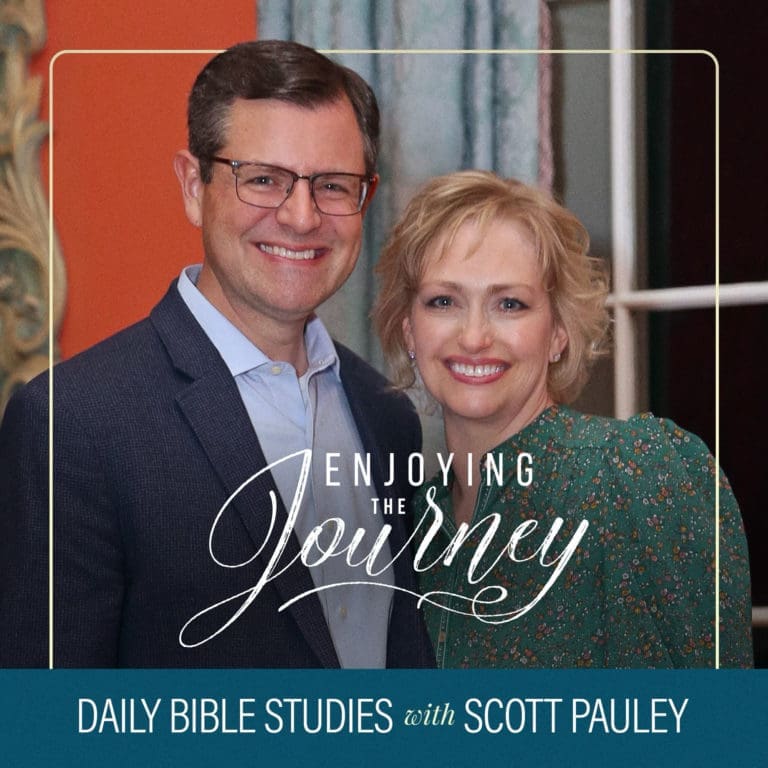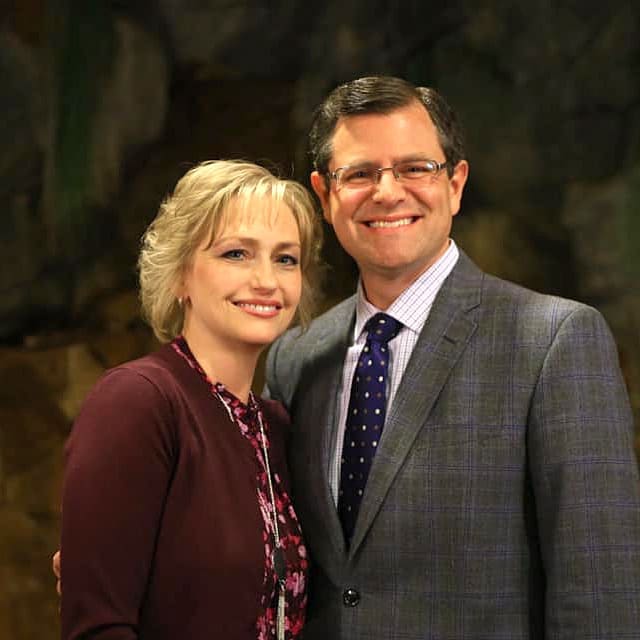Down times can often be down times. Activity, or lack of it, has a great deal of effect on our emotions. The closing days of a year are a very reflective time for most people. Holidays mark the end of yet another year. Life is passing quickly.
The danger in all of this, of course, is that it is easy to get our eyes on our circumstances, on ourselves, and off of the Lord. Remember that it is an all-wise God who designed the seasons, every season with its purpose. This season is an interval to rest and be renewed for the days ahead.
As I grow older I appreciate more the “down times.” They are necessary before the next climb. Many people have written about the necessity of using these days to schedule and plan. That is helpful. Perhaps the most important work that is done is not on paper. It is the preparation of our own hearts for what lies ahead.
1. Enjoy the Lord and your family.
Robert Louis Stevenson wrote, “But Christmas is only the mile-mark of another year, moving us to thoughts of self-examination – it is a season, from all its associations, whether domestic or religious, suggesting thoughts of joy. A man dissatisfied with his endeavors is a man tempted to sadness. And in the midst of winter, when his life runs lowest and he is reminded of the empty chairs of his beloved, it is well that he should be condemned to this fashion of the smiling face.”
Choose to rejoice. Life is not always a smile, but for a follower of Christ it should always be joy. Laugh. Talk about the blessings of God and give Him glory.
Guard your heart and spirit at this time. Dr. Frank Sells used to warn us of “morbid introspection.” Yes, examine yourself! But do not stop there. Look beyond to Christ and His purpose for your life. Refuse to dwell on hard thoughts and think much of the Lord.
2. Make the most of quiet times.
No, it was not quiet at our house on Christmas morning! But during the days after Christmas there is more quiet than normal. Fewer appointments. Less travel. More time to think.
For a type A personality this can be terribly difficult, but it is good for all of us.
One of God’s favorite words, reserved for His book on worship – the Psalms, is Selah. Stop. Think on these things. Vance Havner used to say that we must be “in tune with Heaven.” It requires time to ponder. Learn to be still and let God speak.
Life cannot be fast forward all the time. The story has divine pauses. When God hits the pause button, He is not finished with you. In fact, when God says pause, He is still on the move! The 400 years between the Old and New Testament are often referred to as “the silent years” – no open revelation from God. But a careful study of history will reveal that when God is silent He is at work. Those centuries prepared the world for the coming of Christ and the advancement of His church to the ends of the earth.
These are not wasted days. Time spent waiting on God is never wasted.
It was in the days after the birth of Christ that the Bible says, “Mary kept all these things, and pondered them in her heart” (Luke 2:19). Perhaps this is the best thing we could do as well. The celebration ends, but the meditation does not.
The “in between” times of life are not fillers. They are full of meaning. It was “in the mean time” that the Lord taught His disciples one of the most important truths they would ever learn (John 4:31-38). It is easy to see God at work in the miraculous events of life, but do not forget that He is equally at work on the most ordinary day.
Our world is too noisy, our lives too busy. Spend extra time in prayer. Meditate on a passage of Scripture. Read a book that will stir your heart. Write down things you are learning in a journal. But don’t despise the quiet!
3. Prepare your heart for a new beginning.
That’s what the new year is – a new beginning. In a sense, that is what every day is. God is a God of new beginnings, not old endings. Everything He is doing in your heart today is to prepare you for tomorrow and for eternity.
An old book by Charles Jefferson is laying on my desk now, The Old Year and the New. The thesis of the book is based on Paul’s testimony in Philippians 3:13, “Brethren, I count not myself to have apprehended: but this one thing I do, forgetting those things which are behind, and reaching forth unto those things which are before.” Forgetting. Reaching.
Jefferson wrote: “Many persons have a tendency in the closing days of a year to fall into a pensive and melancholy mood. Glancing backward makes them sad. They thing of the things they have done which they ought not to have done, they brood over the things they have not done which they ought to have done. This tendency to moody retrospection grows upon us as we advance in life…Your life is yet ahead of you. No matter how old you are, your life is yet to come; your real life, your full life, your rich life, – all this lies beyond you.”
And so it does. For the Christian the best is always yet to come! Expect it. Prepare for it. Believe the Lord for it. Do not be detoured or distracted during the down times. The next mountain is on the horizon and your God is leading you forward.






